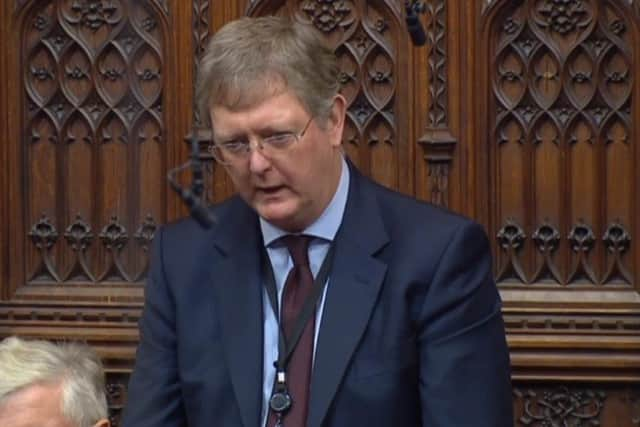Troubles legacy legislation will be more 'robustly compliant' with international law: NIO
and live on Freeview channel 276
Lord Caine said the proposed changes are designed to make the Northern Ireland Troubles (Legacy and Reconcilliation) Bill more acceptable to victims.
However, a Northern Ireland based think tank, the Malone House Group (MHG), fears the revised bill will not address concerns that it remains imbalanced in favour of terrorists.
Advertisement
Hide AdAdvertisement
Hide AdThe legislation provides a conditional amnesty for Troubles-related offences in return to cooperation with an information recovery body – the Independent Commission for Reconciliation and Information Recovery (ICRIR).


Most victims’ groups, human rights organisations and all of Northern Ireland’s main political parties are against the new legislation, which will end inquests and civil court actions as well as criminal prosecutions.
Some of those if favour of the new legislation claim the current legacy process allows for the prosecution of former member of the security forces, with an effective amnesty for terrorists.
Speaking to the BBC, Lord Caine said he was working on amendments to the bill which will have its next reading in Parliament in the House of Lords next month.
Advertisement
Hide AdAdvertisement
Hide Ad"I want to make sure the bill is very clear that reviews can include criminal investigations to a standard that meets our international obligations," he said.
"I'm also looking at measures to bolster and boost the independence of the commission, after a number of criticisms that it gives the Northern Ireland secretary too many powers."The Conservative peer also said he plans to strengthen the penalties for people who refuse to cooperate with the ICRIR – as well as giving the commission powers to revoke a suspect's immunity from prosecution if they are found to have been less than truthful with investigators.
Lord Caine said his friendship with the late Conservative MP Ian Gow, who was murdered by the IRA in 1990, meant he found the amnesty proposals "personally challenging,” but said the legislation was designed to give people an opportunity to establish the facts about their relatives' deaths.
"At this distance from many of the events of the conflict, the likelihood of prosecutions is very slim," he said.
Advertisement
Hide AdAdvertisement
Hide Ad"I think getting as much information as possible to those who want it in a timely manner is probably the best thing we can hope to achieve."
Jeff Dudgeon of the Malone House Group said he has sought a meeting with Lord Caine.
“We are aware the amendments made or promised by the NIO lean in one direction only,” Mr Dudgeon said."We maintain the view that victims' justice is just as problematic as victors' justice and leads inevitably to the rewriting of history, as only the state will answer in court and provide files and paperwork.“Everyone agrees that there can be next to no further prosecutions but pretend that is irrelevant.”Mr Dudgeon also said that a number of recent court judgments in Belfast have ruled that “further legacy reinvestigations are pointless, hopeless, or not required”.